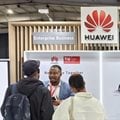






South Africa has its part to play, and beyond retiring carbon-polluting energy resources, utilities must modernise to meet not only the country’s energy demands, but also its decarbonisation efforts.
With a 25% share of all carbon emissions globally, electric utilities play a crucial role in achieving a low carbon future. Renewable Energy World explains a few specific ways electric utilities can reach low-carbon emissions: “To meet carbon neutrality goals, utilities will need to deploy multiple strategies such as carbon capture, cap-and-trade, and investing in lower-carbon energy sources and technologies.”
As we move towards feasible solutions to stabilise South Africa’s grid, utilities must ensure that they future-proof their infrastructure to bring about a new, cleaner future. At Schneider Electric, we’ve identified three key areas that will benefit from digitisation and realise utilities’ goals.
A distributed energy resource (DER) is in essence a small-scale unit of power generation that ia operated locally and connected to the larger power grid at the distribution level. These include solar panels, battery storage systems, natural gas-fuelled generators, and controllable loads.
As we continue to move towards low carbon economies, DERs will undoubtedly enjoy increased uptake. However, DERs are a challenge for utility operations, planning and resource integration. Here, digitisation and automation of the grid will play invaluable roles as it will enable utilities to:
Utilities must have the ability to digitally control distributed generation and delivery of electricity while improving power safety, reliability and quality.
An advanced distribution management system (ADMS) serves as the bridge between OT and IT and is a foundational strategy for a net-zero utility.
ADMS enables utilities to better manage the grid, including monitoring, analysis, control, optimisation, planning as well as training tools such as digital twins that offer a virtual representation of the distribution network.
By merging distribution management (DMS), outage management (OMS), and supervisory control and data acquisition (SCADA) systems into one solution, utilities can maximise the benefits of an evolving smart grid.
Digital transformation allows for the improved management of existing assets which aids in improved energy distribution.
By digitising asset management, utilities can analyse operational, technical, financial, and geospatial sources. For example, operations will be able to gain insight into maintenance to avoid outages, save costs and maximise employee resources.
Managing risk is particularly relevant to South Africa’s unstable grid as it can avoid unplanned downtime and expensive maintenance interventions, remedying faults before it threatens energy provision.
Ultimately, in order to move to a decarbonised world where various energy resources meet our demands, utilities must start looking at digitisation today to fortify the future.